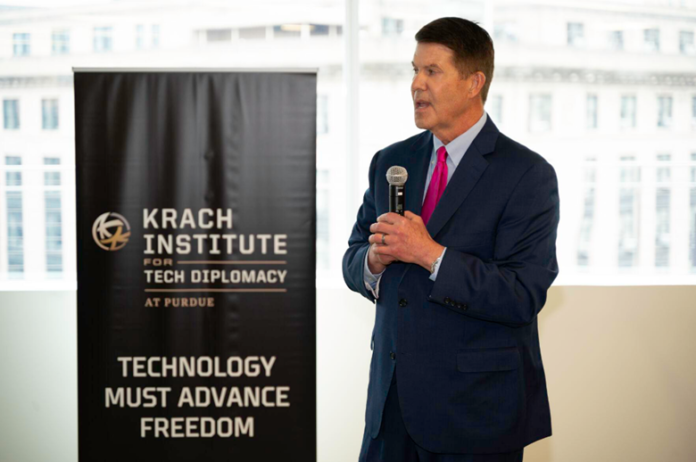

Krach’s “Trust Principle” serves as the model for unifying democracies
How do you one-up authoritarian adversaries like China and Russia that assert the “Power Principle” of intimidation and aggression? For former US Under Secretary of State Keith Krach, it’s all about trust. “Trust is the most important word in any language. You do business with people you trust; you partner with people you trust; you buy from people you trust, and you love the people you trust. Trust is sacrosanct,” Krach says.
By applying the principle of trust, Krach has proven the world does not belong to the totalitarians, and has empowered a new generation to think and act differently. Whether in business, philanthropy, education, or government, he is one of this generation’s premier transformational leaders. Krach was brought into government to run US economic diplomacy where he had the rare distinction of being unanimously confirmed by the Senate.
When asked during his confirmation hearing about his strategy for combating authoritarian aggression, he responded by saying: “My focus will be on harnessing our three most powerful areas of competitive advantage by strengthening our partnerships with friends and allies, leveraging the innovation and resources of the private sector, and amplifying the moral high ground of our democratic trust principles to advance peace and prosperity for our country and for the world.”
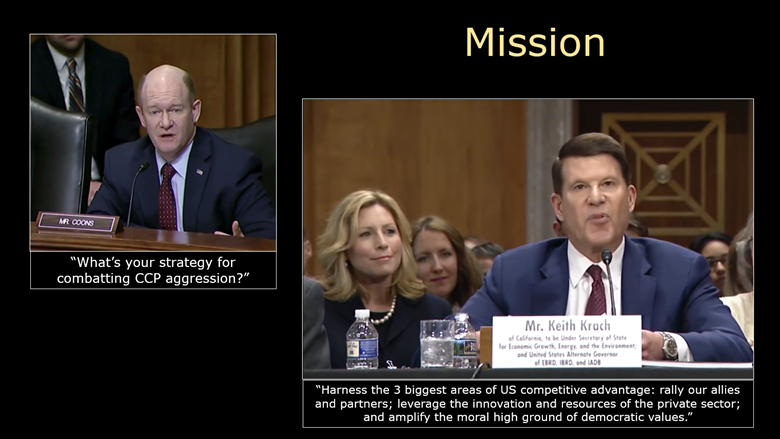
Krach’s answer served as the basis for the “Trust Principle,” and a string of critical initiatives vital to advancing freedom and global economic security, for which he was nominated for the honor of a lifetime: the 2022 Nobel Peace Prize.
“It was a total surprise, and I am truly humbled,” Krach said. “It reflects the hard work of my team to deploy the ‘Trust Principle’ doctrine to defend freedom from technological authoritarianism, safeguard global economic security, preserve democracy in Taiwan, and put an end to the Uyghur Genocide in Xinjiang,” he added. “Trust is something democracies have, and autocracies don’t. Trust was the key to carrying out our mission.”
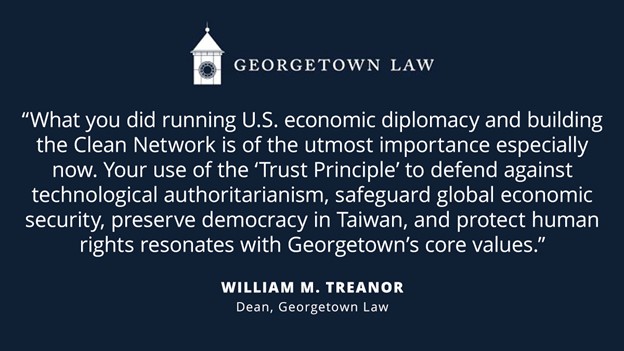
Dean of Georgetown Law School William Treanor observed, “What Krach did running U.S. economic diplomacy and building the Clean Network Alliance of Democracies is of the utmost importance especially now. His use of the ‘Trust Principle’ to defend against technological authoritarianism, safeguard global economic security, preserve democracy in Taiwan, and protect human rights resonates with our core values. That’s why it’s so inspiring.”
According to Dave Stilwell, former Assistant Secretary of State:
In this age of ever-increasing dependence on free and open access to information, U.S. strength in the information space has never been more necessary for the preservation of peace and the advancement of human welfare. We must be able to trust that the information we use is uncorrupted and accessible at all times. Trust and strength are both indispensable to preserving the peace and prosperity we have enjoyed since the end of the Cold War.
Today, no one has advanced these concepts more than Mr. Keith Krach. Which is why I am so proud to endorse his recent nomination for the 2022 Nobel Peace Prize.
Trust Principle vs. Power Principle
The China-Russia partnership lays bare the common “Power Principle” that animates the two. Both governments are revolutionary relics known for lawless behavior, duplicity, bullying, domestic oppression and thought control, coercive economic practices, and grave human-rights abuses. And now, Putin has shown himself to be a violent war criminal with Xi acting as his accomplice.

In a single statement during his Senate confirmation hearing, Krach outlined the basic distinction—and the implications of that distinction—between the “Trust Principle” and the “Power Principle.” “Both sides of the aisle,” he said, “truly understand that our rivals are playing the long game and they are playing for keeps. They fancy themselves as masters of a four-dimensional game of economic, military, diplomatic and cultural chess. Worst of all, they believe they’re above the rules with little respect for human rights, property, international law, transparency, the environment, or the sovereignty of other nations. In this high-stakes competition, there is nothing static about superpower advantage—it can vanish in an instant—and there is no substitute for leadership. In order to prevail, we must play this game better and take statecraft to the next level.”
“Keith is a visionary,” former Assistant Secretary of State Dave Stilwell argues, “because he recognized the utility and importance of access to reliable digital information and the associated vulnerabilities presented by the digital age. Very early on, he saw the need to develop digital systems that could emulate millennia of analog trust—handshakes, signatures, the presence of witnesses, etc.…Upgrading the concept of digital trust to the level of national strategy, he led U.S. government efforts to strengthen its ability to defend our information from those who seek to deny or distort this revolutionary capability for nefarious ends.”
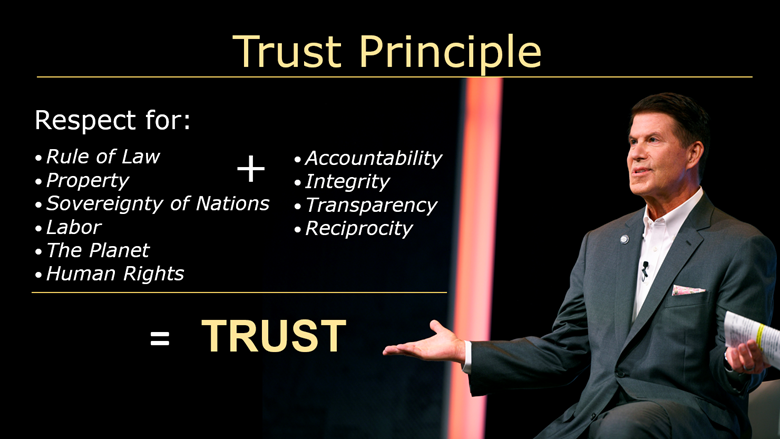
Krach provided the leadership to define the Trust Principle as the basis for a new era of trusted global collaboration based on respect for rule of law, property, the press, human rights, labor practices, the environment, sovereignty of nations, and practices based on transparency, integrity, and reciprocity. These democratic trust principles are honored in the free world. But authoritarian regimes like China and Russia do not. Instead, they have used them against us. The Trust Principle Doctrine turns the tables on the Power Principle by drawing a clear distinction between the two opposing principles while retaining the moral high ground and dealing from a position of strength and solidarity.
Clean Network Alliance of Democracies

One of Krach’s premier initiatives exemplifying the Trust Principle in action was the Clean Network Alliance of Democracies. Through this network of like-minded nations and companies, Krach and his team deployed the Trust Doctrine to overpower the “Power Principle” on one of the most urgent and strategic threats from an authoritarian regime in modern history: the Chinese Communist Party’s 5G Masterplan to dominate telecommunications—and all the data that goes through them—around the globe. As former US National Security Advisor General H.R. McMaster said, “The Clean Network’s defeat of the Chinese Communist Party’s masterplan to control 5G communications was the first time a U.S. government-lead initiative proved that China’s economic warfare is beatable because it exposed their biggest weakness: nobody trusts them. I don’t think anybody has done more to integrate economic security and national security than Keith Krach.”
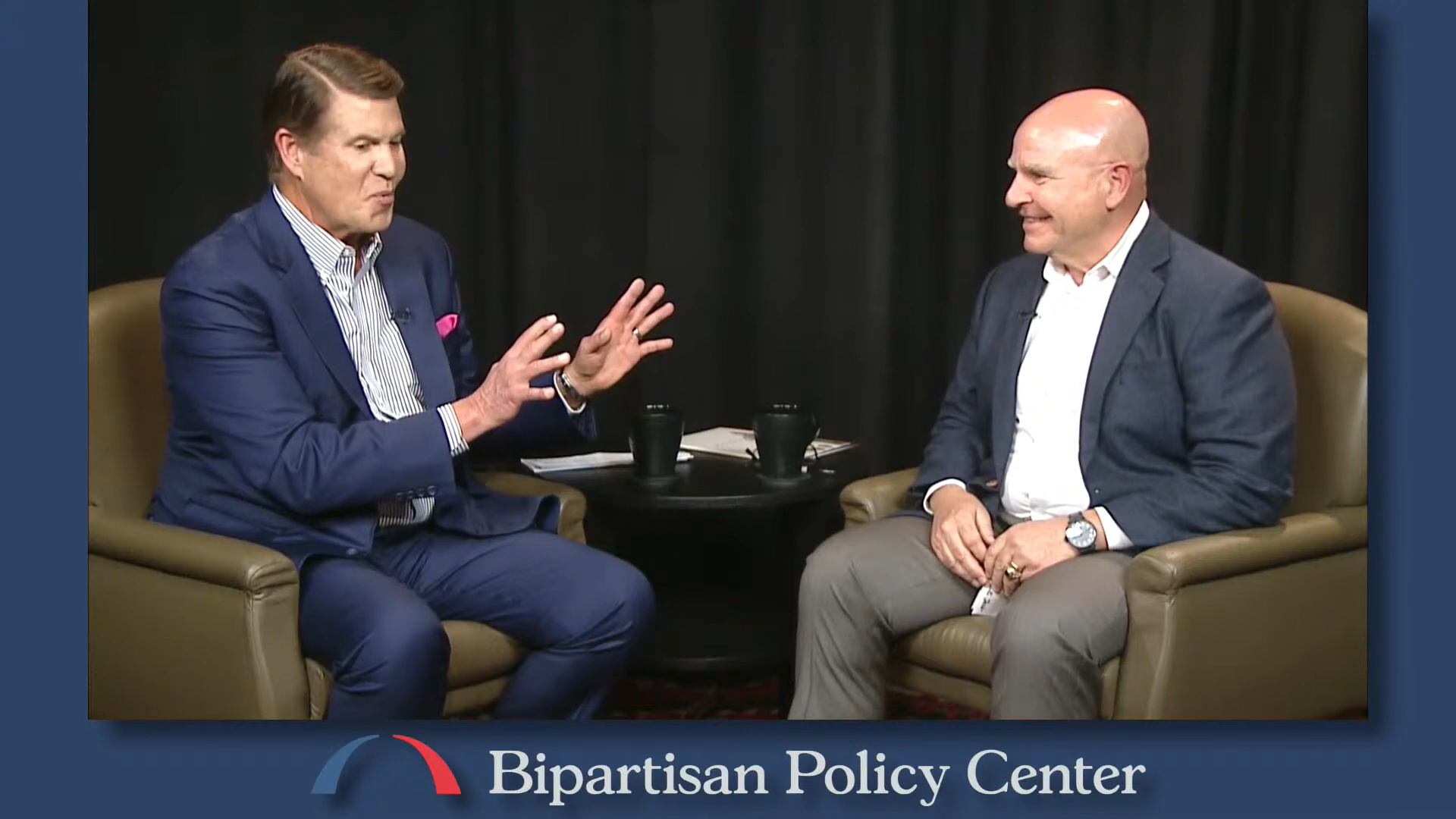
The Trust Principle cracked the code. In less than a year, and during the worst period of the pandemic, the Clean Network grew to 60 Clean Countries representing two thirds of global GDP, alongside 200 Clean Telcos and a host of industry leading Clean Companies. The strategy of using 5G as the beachhead to build a network of trusted partners comprised of like-minded companies, countries, and civil society partners that operate by a set of trust principles created an enduring model for all areas of techno-economic competition. Furthermore, in a hyper-partisan age, Krach and his team were able to do this on a bipartisan basis. Look no further than Krach’s predecessor as Under Secretary of State in the Obama administration, Bob Hormats, who said:
The Clean Network’s success in countering China’s 5G plan serves as a powerful, nonpartisan model for rallying our allies, leveraging the private sector, and amplifying democratic values based on trust.
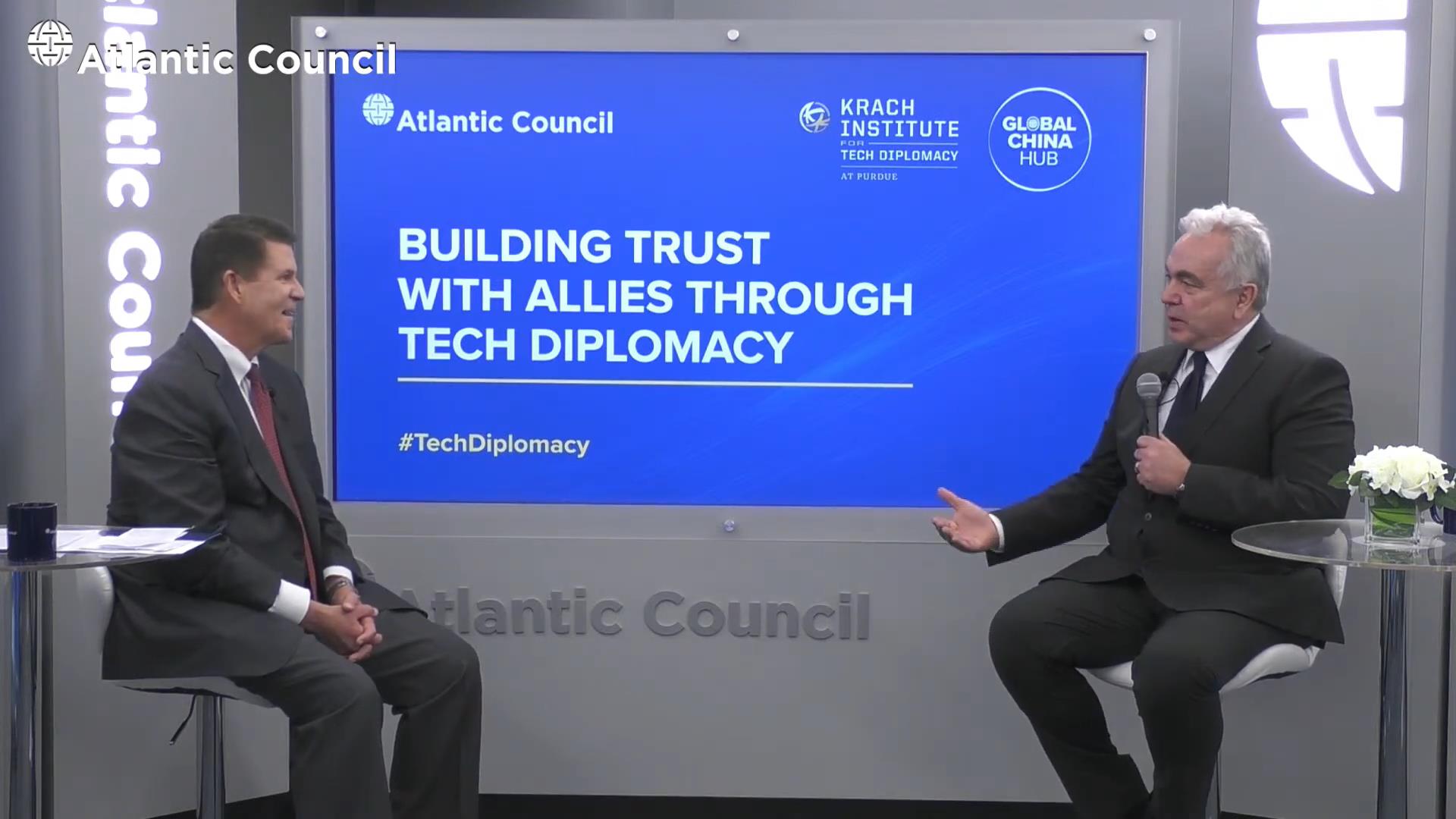
Likewise, Kurt Campbell, who is part of the Biden administration’s National Security Council, praised Krach for his bipartisan outreach:
For those in our audience who don’t understand the challenges of coming into government, particularly as there’s been a transition in parties, Keith is one of the few people that reached out to me when I was appointed to offer counsel and advice. The person who sat down with me and explained what the challenges would be like once coming into the National Security Council was Keith Krach…One of the rarest things in government is continuity of programs because when a new government comes in, they think “I’ve got a better idea and I am going to do it differently.” Almost all the work that Keith did at the State Department, including trusted networks, the Blue Dot initiative, etc., have been followed on in [the Biden] Administration and, in many respects, that’s the highest tribute.
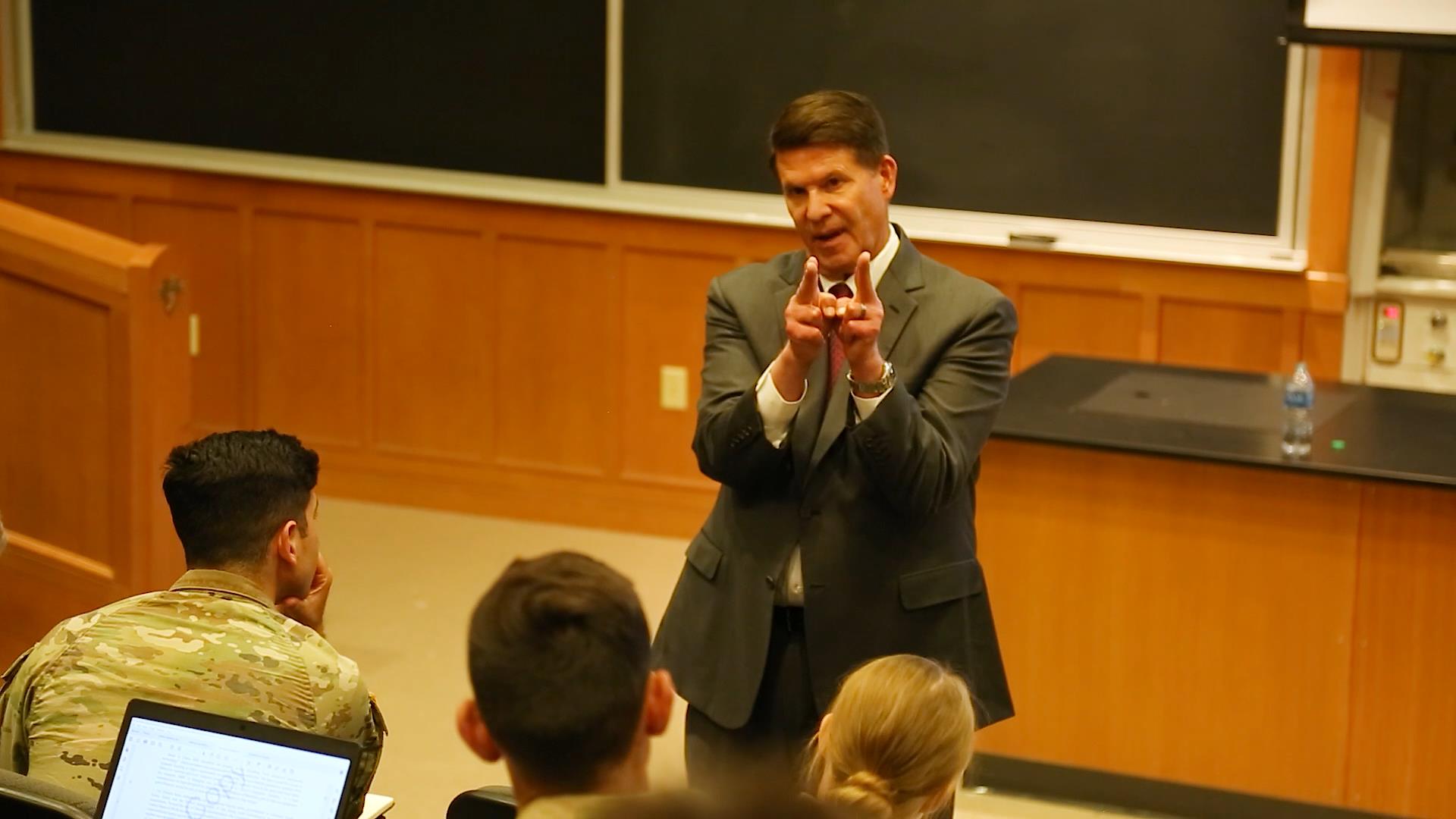
In late March this year, Krach gave a lecture to cadets at the United States Military Academy at West Point on the Trust Principle. West Point professor Col. Carl Wojtaszek offered his own assessment of the Trust Principle and the Clean Network: “Given the growing global challenges, it is important for our cadets to appreciate how sound economic and business principles can enhance our national security strategy. Understanding how Under Secretary of State Krach deployed his ‘Trust Principle’ doctrine to defend against technological authoritarianism, safeguard global economic security, preserve democracy, and protect human rights is an important example of what we teach at West Point. We appreciate him sharing the transformational diplomacy he employed to bring about the Clean Network, and the many insights he shared behind integrating Silicon Valley Strategies and foreign policy tools of the Tech Statecraft model.”
Former Assistant Secretary of State, Dave Stilwell, concluded:
Open, democratic governance is a threat to authoritarians, yet they manage to use our openness against us. Keith’s efforts, particularly the Clean Network, effectively enable the open digital architecture responsible for the explosion in global prosperity while denying access to those who can’t be trusted.
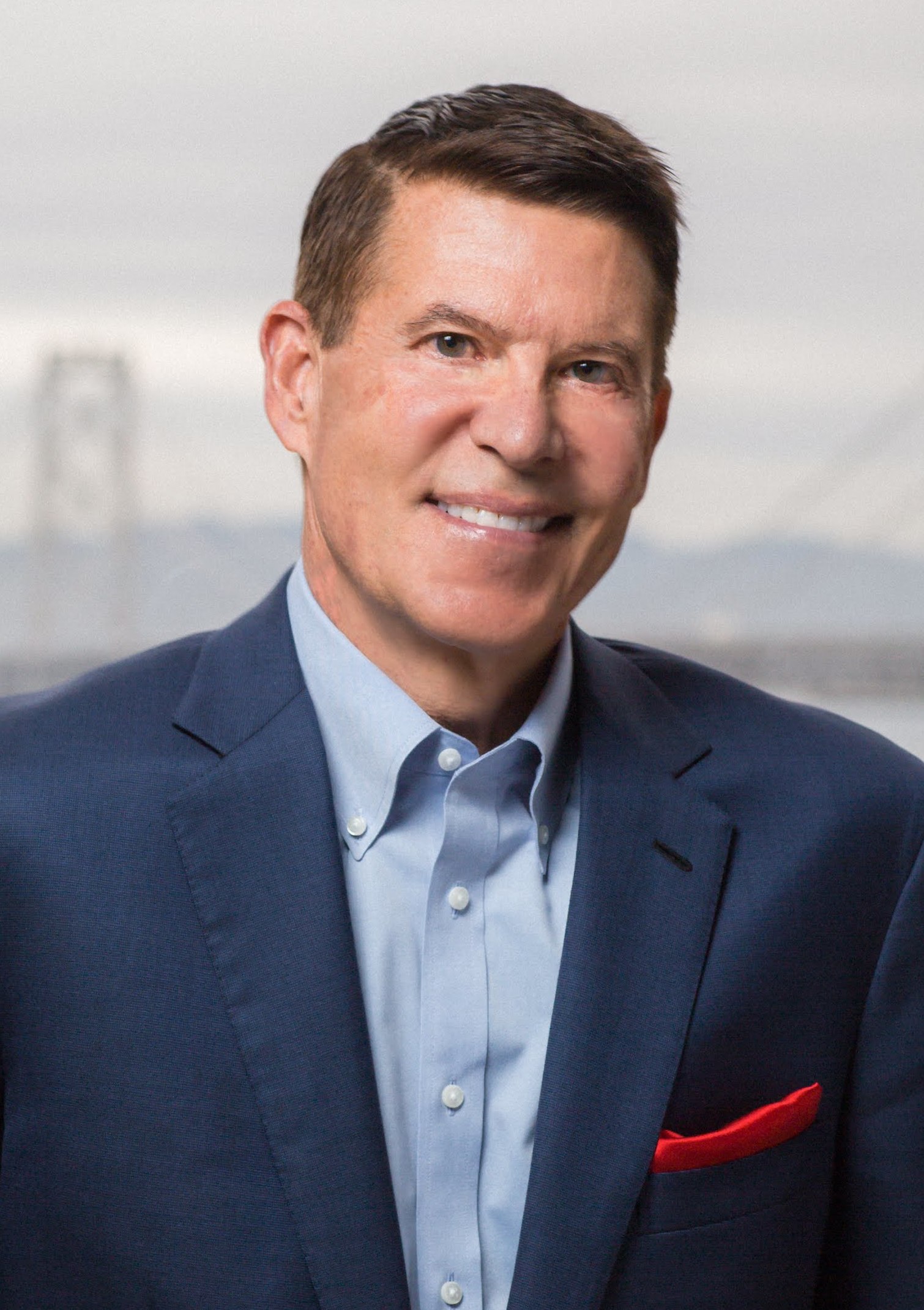
Likewise, in an interview with American Military News, Miles Yu, who is a professor of military Chinese military history at the United States Naval Academy, said that the Clean Network “mobilized the entire power of the U.S. government and the nations of democracy in the world to basically pledge and create a mechanism through which the critical communications network will be clean of malign actors. [Krach] understands the moral side of technology. He understands that if we don’t handle the technologies morally, responsibly, the world is going to go to hell.
So we cannot let critical technology fall into the hands of tyranny and dictatorship.”
Importance of Private Sector Power
As shown in a Harvard Business School case study, The Clean Network and the Future of Global Technology Competition, Krach believed the same principles and strategies he used so effectively in building category kings and massive networks in the private sector could be applied to economic statecraft.
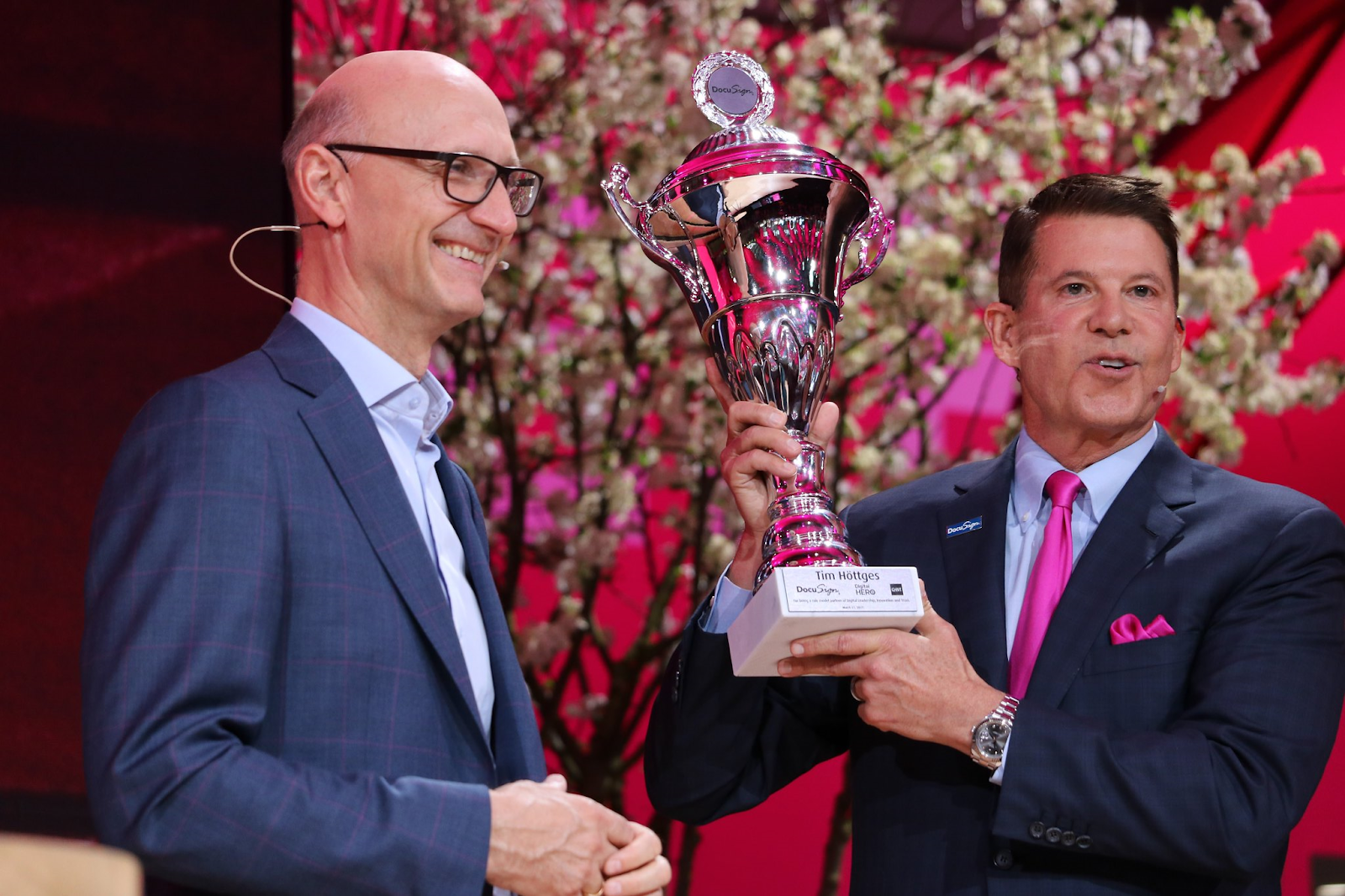
As the CEO of DocuSign, he would stand on stage, sometimes with other CEOs like Deutsche Telekom’s Tim Höttges, and say, “We’re not in the software business, we’re in the trust business. We deal with people’s most important documents. Those are the ones that you sign. Trust is the basis of every relationship—business, personal, or otherwise.”
Krach’s efforts in Germany exemplified the importance of the private sector to the Trust Principle toolkit. Prior to meeting government officials, Krach utilized his long-standing business relationships to engage with more than twenty top German executives in Munich, Frankfurt, and Cologne. He would begin those discussion by appealing to the importance of Article 1 of the German Basic Law, which states that, “Human dignity shall be inviolable. To respect and protect it shall be the duty of all state authority.” The German publication, Handelsblatt, emphasized that Krach spoke the language of diplomacy: “He does not threaten, but appeals to the conscience of the Germans.”
CEO of the German behemoth Siemens, Joe Kaeser, observed, “Under Secretary of State Krach’s experience of building the Ariba Network with $3.7 trillion per year of B2B eCommerce, and the DocuSign Global Trust Network with 100,000 businesses and nearly 1 billion consumers worldwide, provided the perfect background for leading the Clean Network charge.”
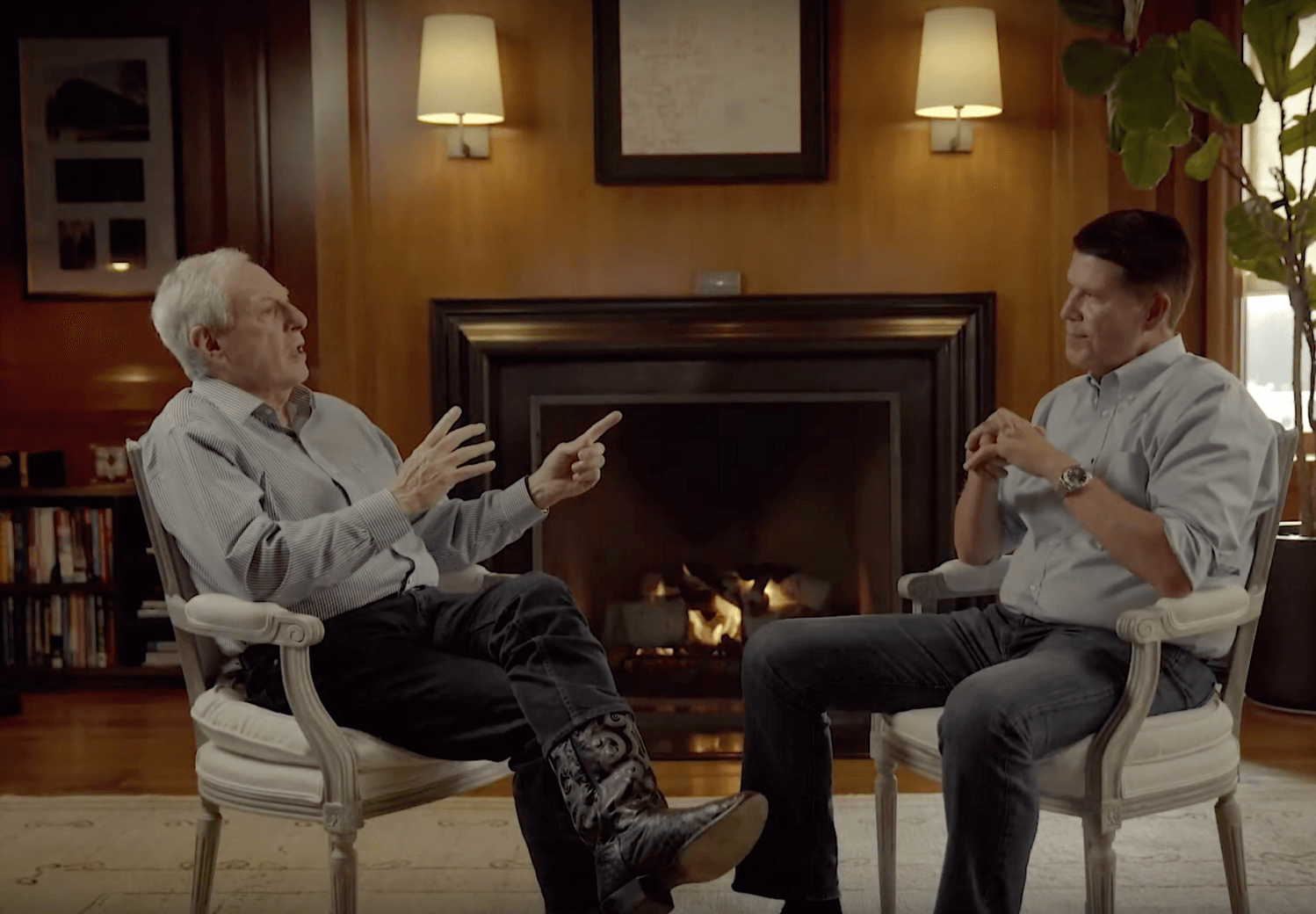
Former Administrator of NASA, Dan Goldin, observed that, “Keith has been instrumental in the advancement of cybersecurity across nations through his brilliant work with fifty countries to assure clean networks, clean lines and trust among countries, corporate entities and their people. He also has been working with American corporations to free up 5G and bring the semiconductor manufacturing industry back to the United States.”
The deployment of the Trust Principle, according to Bloomberg, harnessed the power of Metcalfe’s Law to build a network of nations to counter China the Clean Network’s effort to create a united economic front is to China what George Kennan’s “long telegram” of 1946 was to the Soviet Union. Kennan is considered by the State Department as the father of modern foreign policy who formulated the Cold War strategy of containment. The Wall Street Journal wrote that the Clean Network is an undisputed success and will be perhaps the most enduring foreign-policy legacy of the last four years.
Preserving Democracy In Taiwan
“Mr. Krach has…spoken out—loudly and consistently—in support of Taiwan and its drive for independence,” said Krach’s Nobel nominators.

Krach has characterized Taiwan as the world’s “lynchpin democracy”—the democracy whose survival is vital to the survival and wellbeing of democracies all over the world. This threatens the CCP’s narrative of “one China” that must include Taiwan, because it dispels the myth that democracy is incompatible with Chinese culture.
Krach utilized the “Trust Principle” as the fulcrum in his relentless efforts to shield Taiwan from China’s aggression by strengthening its economic ties to the US and its allies. In September 2020, Krach became the highest-ranking State Department official to visit Taiwan in 41 years. China sent a welcoming party of 40 fighters and bombers into Taiwan’s airspace to greet him.
Krach was there to, among other things, attend the funeral of President Lee Teng-hui—the “George Washington” of Taiwan’s democracy. During his visit, he met with business, tech, and government leaders.
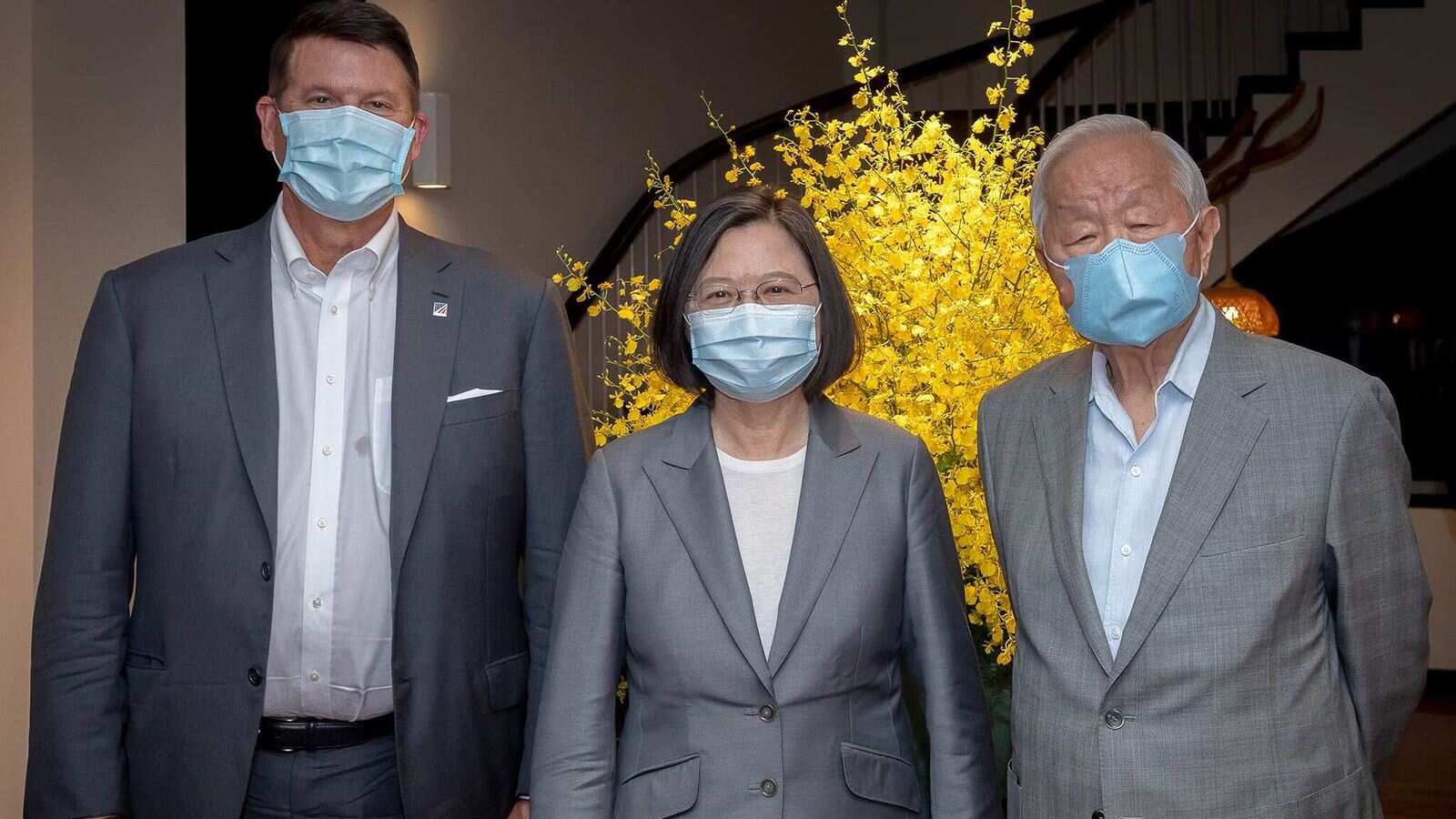
Taiwan’s President Tsai summed up his historic trip by saying, “Under Secretary Keith Krach’s visit exemplified the remarkable possibilities of Taiwan-US relations.” Indeed, his groundbreaking initiatives included the Lee Economic Prosperity Partnership (named after the father of Taiwan’s democracy, President Lee), and the Science and Technology Cooperation Pact, which served as a model and platform for other democracies to build their relationship with Taiwan.
Krach’s team also brought the world leader in semiconductor fabrication, Taiwan Semiconductor Manufacturing Company (TSMC), along with its ecosystem, to the United States. The deal was heralded as a “game-changer” due to its impact on securing the global semiconductor supply chain from authoritarian threats. Indeed, Krach has said semiconductors are the most important industry to global tech security.
In many ways, Krach’s support of Taiwan illustrates the power of the “Trust Principle” based on mutual benefit and respect, against that of China’s “Power Principle” based on bullying and threats, and thus paves a way toward genuine peace and stability in the region. He has been one of the greatest advocates of Taiwan and its people of any American government official in living memory. In a recent interview on Fox Business, Krach even advocated that the US recognize Taiwan.
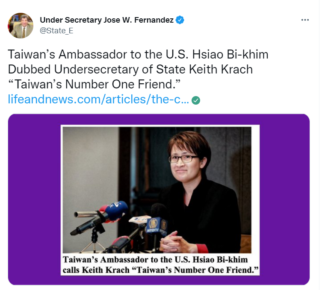
It’s no coincidence that Hsiao Bi-khim, Taiwan’s de facto U.S. ambassador, appropriately dubbed Krach “Taiwan’s Number One Friend,” and after his Nobel nomination tweeted, “Keith Krach is a solid friend of Taiwan. He initiated the Economic Prosperity Partnership Dialogue between Taiwan and the US, and worked tirelessly to build clean and trusted networks of technology. Congratulations!”
Perhaps more than any former US official, Krach has also earned the trust of the Uyghurs, and all those who stand for human rights around the globe. As Under Secretary of State, Krach was one of the first and most vigorous officials to not only call out human rights, but take concrete action to confront it. Krach used the Trust Principle as the platform to shine the light of transparency on the CCP’s human rights abuse from multiple angles—government, business, universities, pension funds, stock exchanges, financial institutions, the press, and civil society.
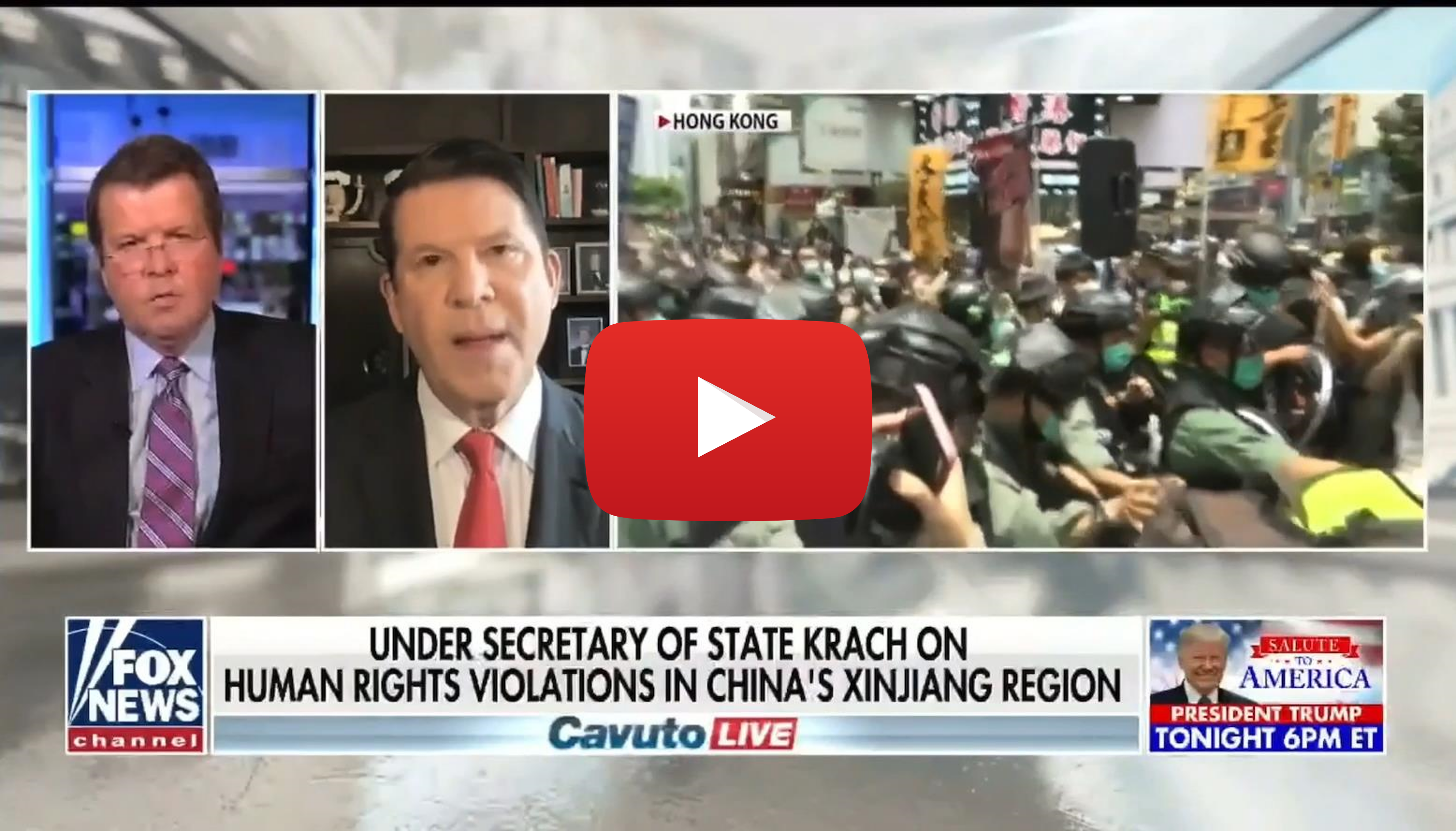
On July 4, 2020—America’s Independence Day—Krach put the spotlight on China’s Power Principle on national television as the first US diplomat to label the Chinese Communist Party’s atrocities against the Uyghurs a “genocide.” This was yet another point on which Krach’s leadership has attracted bipartisan support, with the Biden administration using the same language of “genocide” with respect to the Uyghur.
As a former CEO and Chairman of a major university, Krach sent letters to all CEOs, university governing boards, and leaders of civil society groups, alerting them to the CCP’s “systematic attempt to destroy Muslim Uyghurs in Xinjiang.” Highlighting the Trust Principle, he urged these institutions to act on their moral responsibility and fiduciary duty to disclose and divest from Chinese companies enabling human rights atrocities. College students at Georgetown, Catholic University, and UCLA have joined Krach’s call for immediate divestment from Chinese companies complicit in the genocide of Uyghurs. Yale University’s Advisory Committee on Investor Responsibility is following suit, as is former governor of Indiana and current President of Purdue University, Mitch Daniels, who Krach hired when he was Chairman of the Board of Purdue University. Krach’s leadership of this growing movement was called “groundbreaking” in Newsweek.
“When we talk about sanctioning against Chinese human rights violations in Xinjiang against the Uyghurs, against the Kazakhs in the region, we’re talking about basically China’s use of their technology…a very sophisticated system of surveillance,” said Miles Yu, a professor of Chinese military history at the United Naval Academy. “It was Mr. Krach who led the campaign to sanction China’s technology firms, who were responsible for perpetrating this genocide,” Yu asserted. “He clearly showed his leadership and made the world much safer for democracy and peace.”
“Keith not only called out the atrocities occurring in Xinjiang,” said former Administrator of NASA Dan Goldin, “but also took the initiative to work with impactful organizations and leaders around the world to hold accountable those responsible for forcing a block of people into state-sponsored labor camps suppressing their religious practices.”
Retaliation—A Shot Across the Bow
The Chinese government responded to the Trust Principle Doctrine and Krach’s diplomatic effectiveness by sanctioning him and his family and declaring him an enemy of the State. “That’s a badge I’m going to wear with honor,” Krach said on national television about the CCP’s sanctions against him and his family. “I don’t think we should bend the knee to the China bully.”
“Beijing retaliated by sanctioning Keith as well as his family for his work to defend the peace,” observed former Assistant Secretary of State, Dave Stilwell. “Keith Krach’s commitment to advancing peace in the Western Pacific [i.e. Taiwan] came at great personal cost.”
The CCP’s propaganda machine will likely kick into full motion to challenge Keith Krach’s Nobel Peace Prize nomination. Norway, the Nobel Committee’s home, is itself no stranger to China’s ire, having endured years of economic and diplomatic retaliation after the Chinese dissident Liu Xiaobo was awarded the prize in 2010. China’s Power Principle took on many forms, and included an economic and diplomatic blockade of Norway that generated international headlines and universal disdain.
“The Nobel Committee’s consideration of Mr. Krach will no doubt face the CCP’s opposition, too, perhaps even its intimidation and retaliation. That’s how you know Mr. Krach’s a good choice,” noted U.S. Naval Academy professor and China expert Miles Yu.
The Mission Continues: The Krach Institute for Tech Diplomacy

Krach has continued what he began at the State Department by co-founding the nonpartisan Krach Institute for Tech Diplomacy at his alma mater Purdue University. Its goal is to advance freedom through the widespread adoption of trusted technology. “I’m just thrilled that you’re taking this on,” said Kurt Campbell, the Biden administration’s Coordinator for Indo-Pacific Affairs at the National Security Council.
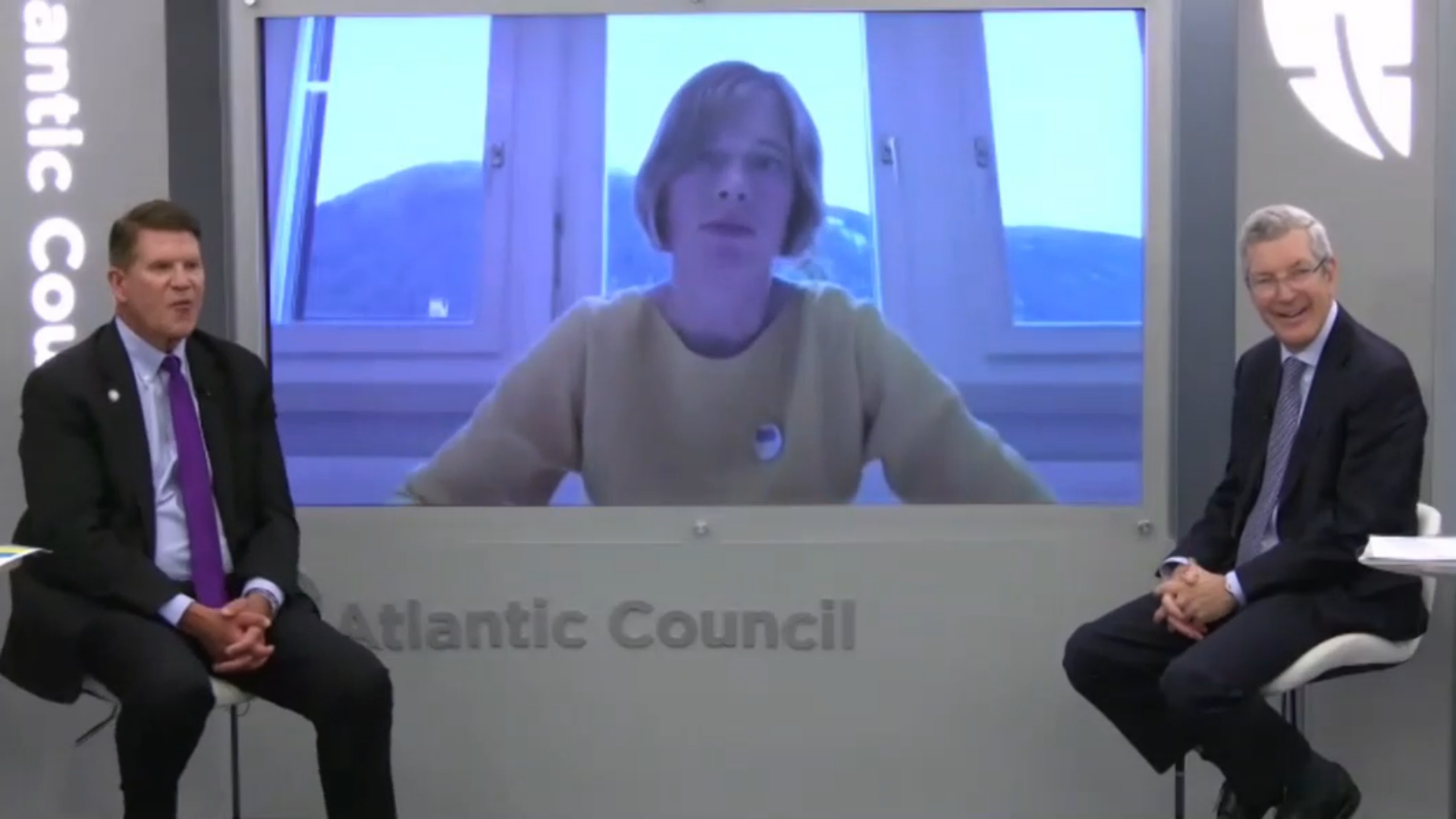
One of its first initiatives is with the Atlantic Council: the launching of a Global Tech Security Commission, whose purpose is to safeguard freedom technological authoritarianism. The Commission is co-chaired by Krach, and former president of Estonia, Kersti Kaljulaid. “The key to securing freedom for the next generation is securing technology,” said Krach. “Tomorrow’s tech must be trusted tech, developed and protected by a Global Trust Network of like-minded countries, companies, and individuals who respect the rule of law, human rights, labor practices, national sovereignty, and the environment.”
Fred Kempe, President of the Atlantic Council, expressed enthusiasm for the Institute:
Krach is a leader in uniting like-minded stakeholders through a series of trust principles under the “Trust Doctrine” to drive change, for which he has been nominated for the 2022 Nobel Peace Prize. I can’t think of a more important time to be doing this kind of work…The Krach Institute’s new model of transformational tech diplomacy based on the “Trust Principle” makes it the ideal partner for the Atlantic Council and the Global Tech Security Commission.
The Global Tech Security Commission plans to release its report by 2023.
According to General Stanley A. McChrystal, who serves on its board, the Institute “is rapidly becoming the foremost authority on securing freedom through Tech Statecraft.” The Institute’s unique focus on advancing freedom through the adoption of trusted technology has attracted, in addition to McChrystal, a distinguished list of luminaries to its board, including the longest-serving Director of NASA, Dan Goldin, former ambassador and Under Secretary of State, Robert Hormats, and former US Secretary of Defense and CIA Director, Leon Panetta.
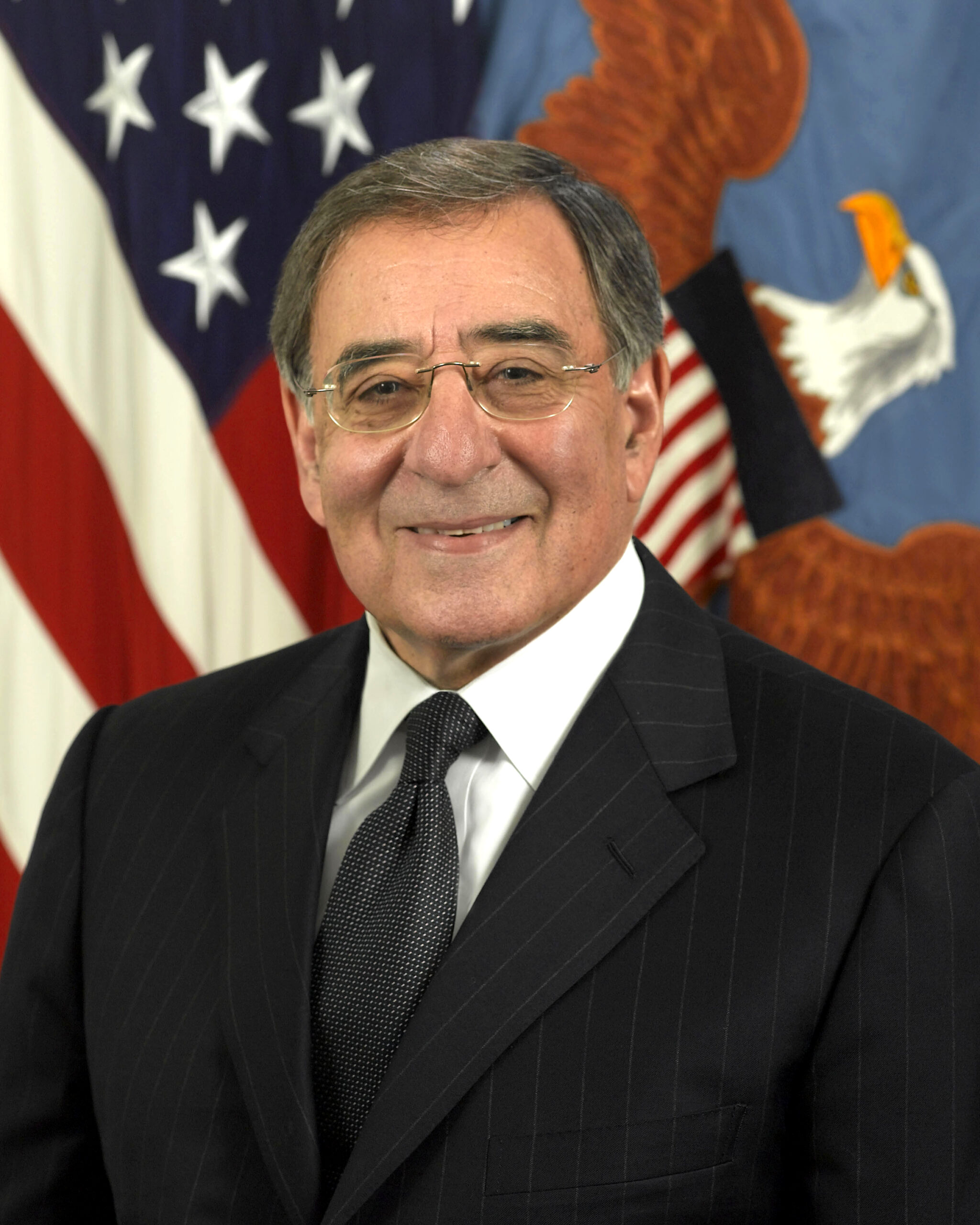
On joining the Institute for Tech Diplomacy’s Global Advisory Board, Panetta observed the urgency of adopting Krach’s Trust Principle-based model to counter authoritarianism: “China’s techno-economic aggression presents a serious threat to the United States and the free world, especially when it comes to advanced technologies, like 5G, AI, semiconductors, and others.The Clean Network pioneered a trust-based model for countering authoritarian aggression across all areas of techno-economic competition. I support the adoption of that successful model by the Center for Tech Diplomacy at Purdue in its noble mission.”
Today, as freedom is challenged by authoritarianism in Ukraine, Krach’s Trust Principle has become even more significant. Ukrainian courage is beginning to unify democracies in an unprecedented way, and has served as a rallying cry like never before to build a trusted Alliance of Democracies built on mutual trust. Now is the time to channel that momentum into standing up to authoritarianism based on shared trust principles. China’s bullying tactic has always been to divide and conquer. We all learned in the school yard that bullies back down when you confront them—especially when you have your friends by your side.
“When it comes to taking on the CCP, there are a lot of talkers. Many are doom and gloomers. But Mr. Krach is a doer who competes to win,” said Naval Academy professor Miles Yu.
Whether the aggressor is Russia or China, or the belligerence is military or economic in nature, Krach’s vision of trusted collaboration as a security blanket against authoritarian bullying could not be timelier and more consistent with Alfred Nobel’s vision of fraternity among nations, the elimination of war, and the promotion of peace. Just recently, in light of Putin’s actions in Ukraine, he called on CEOs to proactively “present your China contingency plan at the next board meeting.” He continued: “You can’t afford to get caught off guard on this one. So prepare now. When that moment comes, and you’re not ready, it will already be too late. When the dreaded becomes inevitable, you no longer need to fear it. You must develop a plan and execute it.”
As Krach says, “The world does not belong to the totalitarians. It belongs to those who stand for human freedom and dignity—so long as they remain standing. It is through reliance on shared values and democratic principles that we will win the battle against authoritarianism. Our greatest hope for peace it to harness the strengths of our democracies—trust, transparency, and meaningful alliances—and use this to advance freedom for the people of the world.”



















